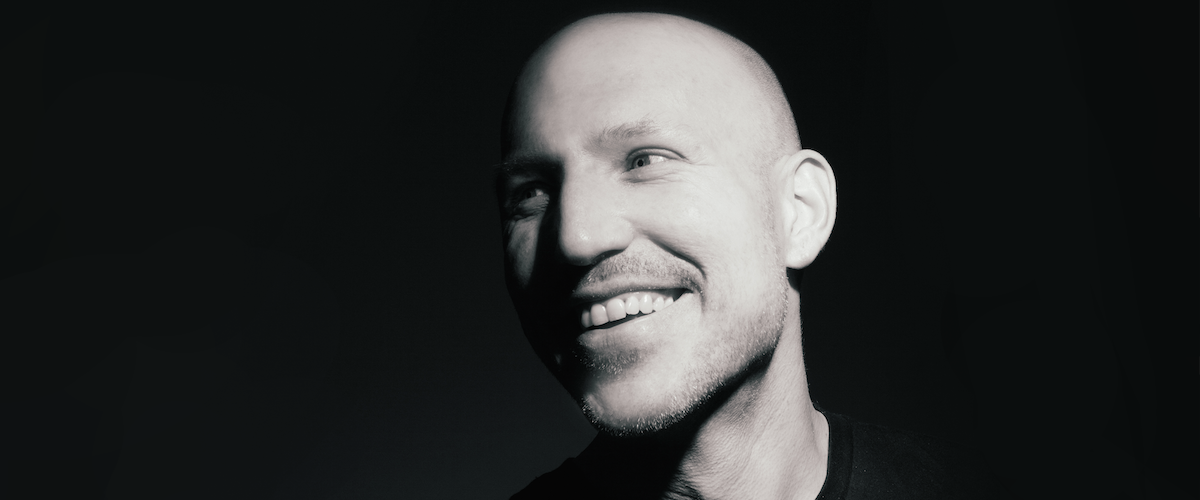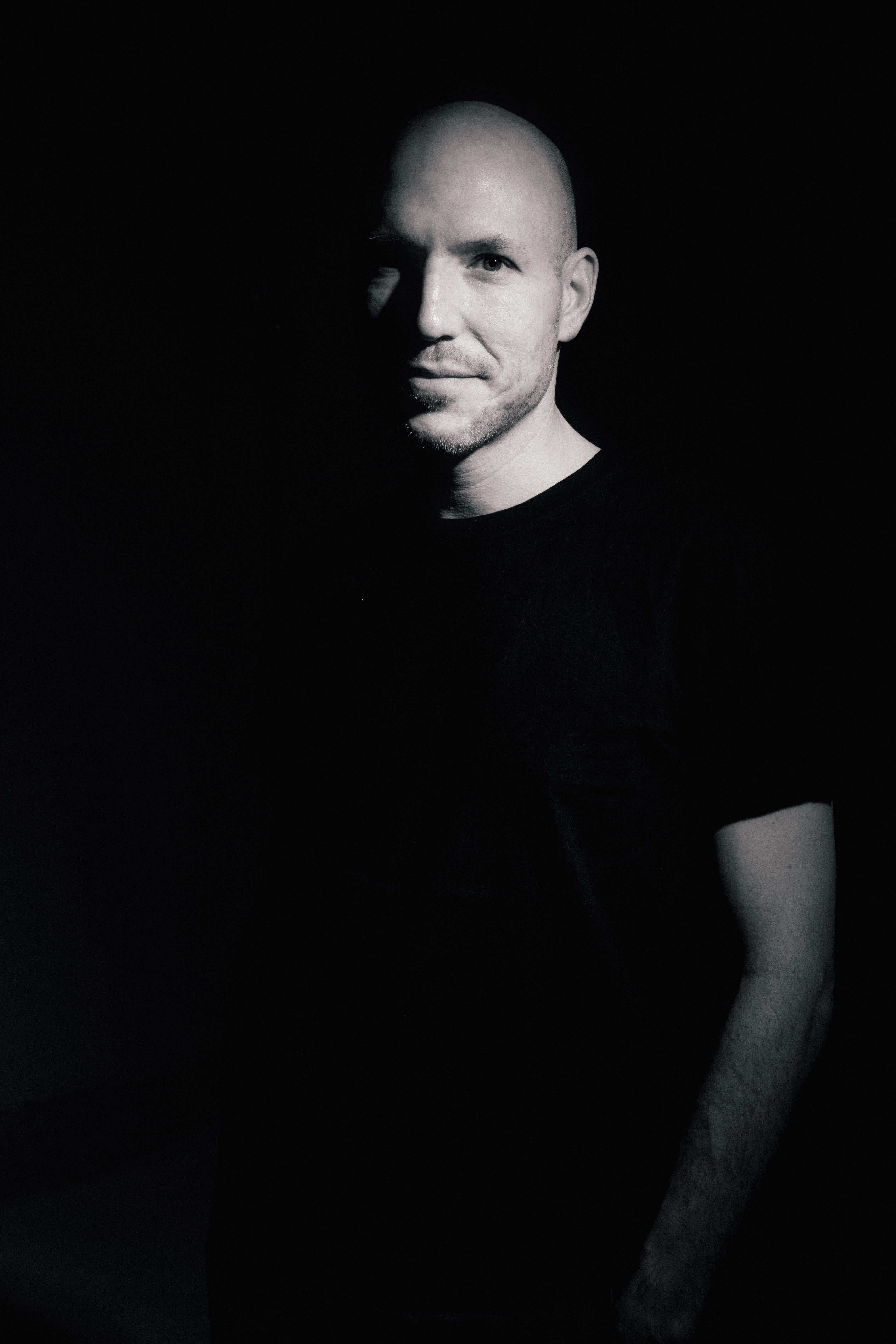Real Talk: Brett Johnson
The US DJ-producer explores the importance of 'playing the game' in artistic success.

Real Talk: Brett Johnson
The US DJ-producer explores the importance of 'playing the game' in artistic success.

The latest in our series of artist-penned essays comes from America’s Brett Johnson. The Berlin-based DJ-producer has been releasing his take on groovy house for the best part of two decades, his first EP (Vibrations EP) dropping in 1999 on Aesoteric Records. Indeed, as you dig a little further, it’s hard not to be impressed by his sizeable discography: there’s no shortage of releases or big-name labels (Classic, Visionquest, Cynosure and Get Physical all appear on more than one occasion). Add to this his work as a DJ and remixer, the products of which can be compiled into a similarly dazzling list, and you can’t help but wonder why Johnson’s profile remains smaller than many artists who cannot boast such an impressive track record.
“I haven’t always played the game so well,” he says during our earlier conversations. It’s certainly an interesting area of conversation: it’s not always the most talented artists that will rise to the top, a point that is especially true with the technological advancements of the modern day. We immediately wanted to hear more. As a result, we asked Johnson to sit down one afternoon and elaborate on his thoughts on the issue—to explain in greater detail his thoughts on what “playing the game” really entails, and how it has influenced the industry that he has long called his own.
‘Play the game or the game will play you’ – Anonymous
Make no mistake: although technology has drastically changed how we live our lives, artists and musicians have had to promote themselves one way or another since the very beginning. When XLR8R asked me to write something about “playing the game” in electronic music, I struggled at first to find anything of value to say. My opinion on the subject, not unlike other artists, is that “playing the game” gets in the way of making the music. Therefore, it is a subject of much annoyance at best, and deep frustration or anger at worst.
It should also be noted that, in doing anything in this world, there is some game “playing” required. There is no point in fighting it. The reason I think some artists struggle with this concept is that making art has nothing to do with success; but the truth is that this success is normally required if they are to have the financial resources to continue creating. However, a traditional artist—one who thinks about and creates art constantly—is usually so consumed with said activity that it does not allow for much growth or thought in the department of self-promotion.
“We live in strange times, where people are famous for being famous, and a person’s hype often outweighs their actual talent.”
You’ll notice I said traditional artist. While the need to promote oneself hasn’t changed, technology—namely phones, social media, computers and DJ/studio software—has created new ways for people to become “artists” and still find success. “DJs” can find bookings without really being able to mix and “producers” can make music without any real talent. Smart phones and the growth of social media means that artists can be in peoples’ faces and minds all around the clock. We live in strange times. People are often famous for being famous, and a person’s hype often outweighs their actual talent.
And now that technology has wired the world into a matrix of information and influence, it seems that anyone can be famous and find success: you only have to stay in peoples’ thoughts for long enough. Humans have this condition known as the “Kardashian syndrome” or “I-love-how-I’ve-heard-of-you-itis.” This has actually allowed many new electronic music “artists” to find success simply by delegating some of the more fundamental artistic requirements to others, following the rules and guidelines to effective self-promotion and pressing sync on their gear.

Typically, an artist wants to spend their time creating, thinking about creating or getting ready to create. Nowadays, however, it’s more like create, network, promote, and then promote some more. Now it’s easier than ever before to make and distribute music. Sounds great, right? Yes and no. The world is overcrowded with artists hustling for attention and there is limited space. I’m avoiding the temptation to say “things were better in the past,” but in some ways they were.
I started buying records as a kid, before the digital revolution or file-sharing apocalypse—whatever you want to call it. I say it was better because there were more filters in place which led to a higher quality control in what was making it to the public. This let the public have more space and time to digest the music and artists around them. These days, we miss so much because of how fast everything is moving.
When it comes to “playing the game,” we’re in a constant state of change. Today, DJs and producers use everything from the DIY social networking to hiring publicists and spending large amounts of money on buying “likes” and the sort to increase their exposure. What avenue an artist takes depends on the person and what kind of “artist” they want to be.
“The artists who seem to find the most success are the ones who can successfully surf the line between artist and entertainer.”
The artists who seem to find the most success are the ones who can successfully surf the line between artist and entertainer. They impress not only through their art, but also through their image and persona. Humans are very multi-faceted creatures, yet we like to categorize and label each other and everything. We get an idea about an artist through their work or social media ramblings, and assume this is who they are, typically putting them on pedestals and forgetting that they are actually human too. People want to be close to an artist they love and these various social media channels create an illusion of who they really are. I say illusion, of course, because social media is a lot like how my father describes dating: “You always send your best representative.” Although many of us realize what we see online is heavily curated by the user, we still cannot help but be influenced by it, for better or worse.
“I believe the best artists are the ones who can travel the deepest inside themselves; the further you go, the more you discover and can share. This kind of depth can only be reached by spending massive amounts of time thinking about and creating art; anything else not directly connected to that is a distraction.”
Instead of giving you a to-do list of various tasks an artist has to do to maintain a public presence, I’m going to talk to you about my experience.
I have learned many things throughout my career, one of which is that people look for feeling and sincerity in music and art. It is for this reason that I’ve spent most of my time improving upon my sound and not my wardrobe. I’ve always wanted to be an artist of substance, function before form, and all that. However, where I, and many others like myself, fail is to appreciate how important the hype factor is.
Like most artists, I got into music for the creation and exploration of music itself, to spend all my time thinking and creating in order to make it better and see it grow. I believe the best artists are the ones who can travel the deepest inside themselves; the further you go, the more you discover and can share. This kind of depth can only be reached by spending massive amounts of time thinking about and creating art; anything else not directly connected to that is a distraction.
It’s because of this that so many of us are bad at self promotion and “playing the game.” I spent most of my career not understanding the game, always thinking, “If the music is great, everything will work out.” In some ways, I still think this is true, but with the ever-evaporating attention span of the public and continued flood of new DJs and producers, it’s becoming increasingly difficult.
“This failure to “play” is something that I regret. The game was different then but had I been a little more clever regarding the use of aliases and branding, I could have gone further.”
Even this essay is an attempt to expand my exposure and hopefully help some people discover my music. Don’t get me wrong, I’m honored that XLR8R would ask me my thoughts, or that you would spend the time reading them, but I’m here for the music, as they say. This failure to “play” is something that I regret. The game was different then but had I been a little more clever regarding the use of aliases and branding, I could have gone further.
In the last decade or so I have seen more DJs and producers than ever before rise to the top on very little substance. I won’t only blame the artist as this ascension usually happens before they start to work with people helping them to make smarter moves and climb the ladder. I actually think technology and society at large also play a role in creating this situation.
It sounds funny, but I think there is some darkness that lingers in the shadow of our world, some dumbing down that is happening to us all, causing important lessons and useful knowledge to disappear. In its place there is a growing acceptance and celebration of mediocrity and illusion.
And you can look anywhere for examples of it happening: EDM, celebrity DJs, top tier DJs and producers whose performances rely heavily on technological crutches, yet the world thinks they are creating the wheel. Even a departure from more traditional song (vocals) writing, something that used to be intrinsic to dance music, is now the exception. Everything is getting simpler!
The good news is that there will always be a place for talent and depth in the world. In fact, after all the new gadgets and fads have moved on, people will look back at the more organic ways of doing things. I’m not just talking about the vinyl/sync debate either; I’ll let you guess where I stand. What I’m talking about is the real soul of what we do and that exists beyond formats and tools. It’s true human expression and effort that we seek. If “success in life is found in the journey, not the destination,” then the challenge of each task we embark on is a part of that success.
It boils down to this folks: yes, you need to play the game and get people’s attention, but what is it you are going to say when you have it?
Better make it good.

